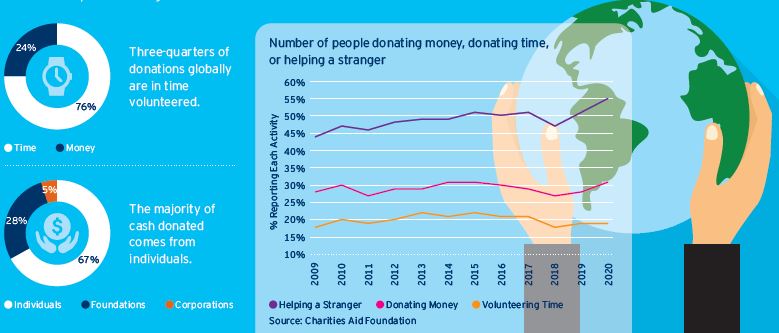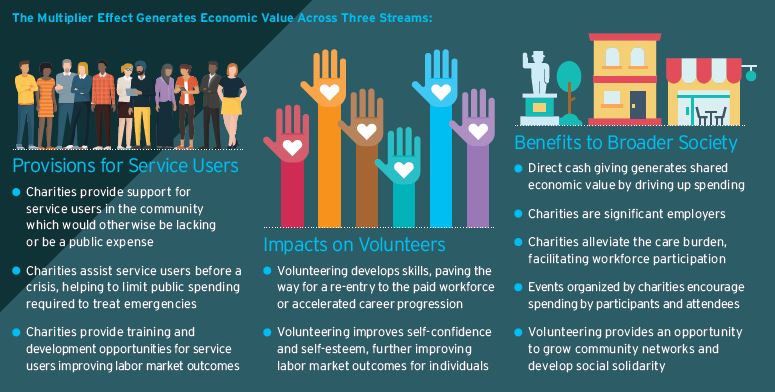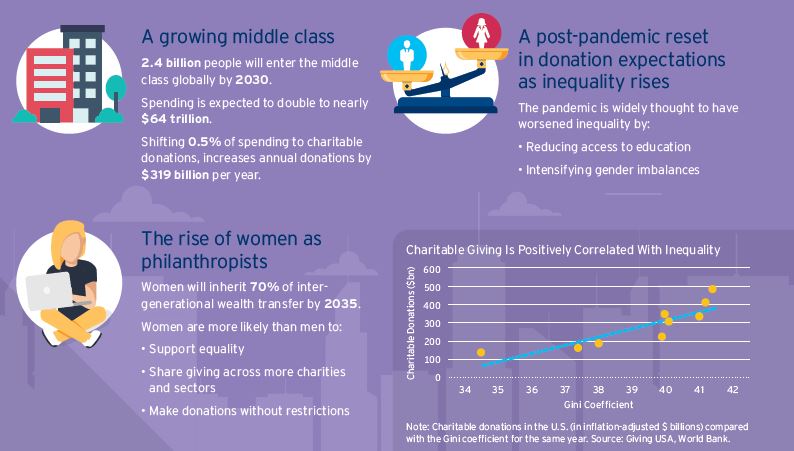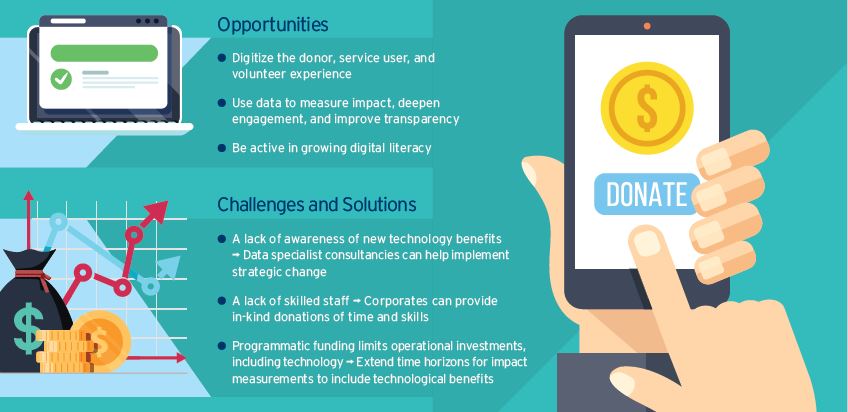Philanthropy has existed through most of human history, with the word philanthropy itself being derived from Ancient Greek with the meaning of “love of humankind.” The notion of philanthropy can stir up controversy for those who think that it is the role of the state to invest and to provide for its citizens, or for others who believe that individual philanthropists can exert too much power and influence through the causes that they support. However, it is important to understand that public and private funding play different and complementary roles. If the two are harnessed successfully, progressive outcomes are achieved.
On narrow definitions, the stock of philanthropy equates to just under 3% of global GDP. However, as we show in this report, in some advanced economies the fully adjusted value is 10% or even higher. The scale of this contribution needs to be more broadly recognized, especially within the policymaking world. Many of the world’s greatest challenges can be better overcome by a broader partnership between the public, private, and charity sectors.
Philanthropy is going through multiple transitions of which the response to the pandemic is only one. We believe that philanthropy can play a much larger role in the green transition and the move to net zero. There will also be material changes in the global supply of philanthropic capital driven by growing wealth in emerging economies. In addition, there are some notable other transitions, among the most significant of which are the changing aspirations of younger donors; the growing role of female philanthropists; and, critically, the impact that technology will have on the management and targeting of philanthropy. We review each of these transitions and several more in this report.
In this report our Citi GPS team has partnered with the Philanthropic Advisory team of Citi’s Private Bank as well as with outside experts to review the role that philanthropy plays in the global economy and what the future may bring. We have conducted an extensive literature review and participated in multiple sessions with expert commentators. We are particularly grateful to the experts listed in the author block of this report for their detailed contributions to our study.



